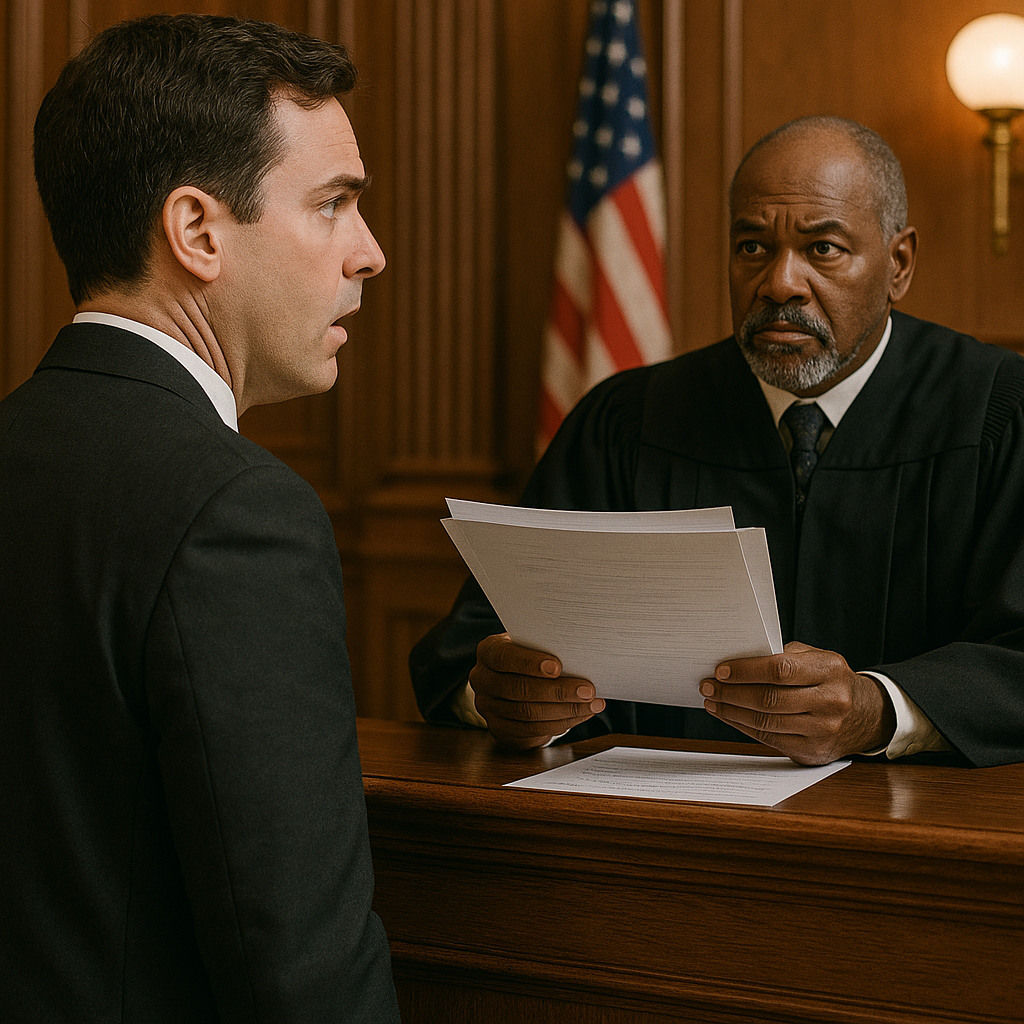Following up on the recent post, Appointment Of Umpires and What Qualifications Matter To A Court?, Robert Norton from the IAUA ( Insurance Appraisal and Umpire Association) reminded me that I wrote a blog, What is a “Competent” Umpire for a Property Insurance Appraisal. I quoted a lot of authorities in that post about what type of person would be a qualified umpire. Still, I noted the following personal view:
As far as ‘competent,’ who is going to say that a retired judge cannot be ‘competent?’ Most intelligent people who are respected and of high character should qualify as ‘competent.’
Held and Norton raise the issue if those types of umpires, who might not have some skill sets concerning the issues being presented, are the best umpires for parties to an appraisal. That is a different standard of ‘competent.’ While not being the legal minimum standard, they make a great point that in fairness to the parties, the judgment of the appraisal panel might be better and more accurate with the selection of an umpire that has some education into the specific issues which are being appraised. While not technically required, the suggestion of this type of ‘qualified by criteria of what is to be appraised’ umpire has a lot of practical advantages.
While the views of Jonathon Held and Robert Norton may be valid, I also think that judges who are appointing umpires should be made aware if those being suggested as competent, are certified members of the IAUA or the Windstorm Network, which have both established ethical guidelines.
The IAUA Code of Ethics states:
Conducting Appraisal to resolve disputes in insurance claims engages the public trust. Appraisers and Umpires shall put the duty for fair and honest conduct of the Appraisal Process above the Appraiser’s or Umpire’s own interests in every instance. The following standards of conduct define the ethical behavior, and shall constitute a code of ethics that shall be binding on all members of the Insurance Appraisal and Umpire Association:
I. Members of the Insurance Appraisal and Umpire Association shall not engage in practices which may discredit the IAUA or the Appraisal process as a fair, expedient and cost effective Alternate Dispute Resolution method.
II. Appraisers and Umpires shall conduct themselves with the highest of ethical standards in their dealings with policyholders, the insurance companies, the public, Appraisers, Umpires, claim professionals, and experts.
III. Appraisers and Umpires shall remain current on the laws and regulations affecting their professional responsibilities by attending such classes, seminars and training as necessary.
IV. An Appraiser or Umpire shall not undertake any Appraisal concerning matters with which they are not currently competent and knowledgeable, or which otherwise exceeds their current expertise; Appraisers and Umpires must be competent for the particular matter.
V. Appraisers and Umpires shall conduct themselves in such a manner as to command respect and confidence and shall approach Appraisals with an unprejudiced and open mind, while advocating for their client as legally appropriate.
VI. Appraisers and Umpires shall not injure the reputation or professional practice of colleagues.
VII. Appraisers and Umpires shall not approach Appraisals in a manner prejudicial to the policyholder or insurance company.
VIII. Appraisers and Umpires shall handle every Appraisal with honesty and integrity, and allow a fair Appraisal to all parties without any compensation or remuneration to himself or herself except that to which he or she is legally entitled.
IX. Appraisers and Umpires, upon undertaking an Appraisal, shall act with dispatch and due diligence in achieving a proper disposition of the Appraisal.
Before the IAUA came into existence, a number of us who were concerned about fair appraisals suggested and promoted certification of umpires while I was on the Board of Directors of the Windstorm Network. I wrote a blog about some of this work in 2009, Umpire Certification for Property Insurance Appraisals and an Umpire Code of Ethics by The Windstorm Insurance Network, where I stated in part:
One of the more successful professional organizations that I have been involved with over the past decade is the Windstorm Network. Insurance defense attorney, Janet Brown, conceived the idea. It has an Umpire Program that provides classes for certification for the appraisal of property insurance disputes, an Umpire Directory, and a Code of Ethics, which has been approved by the general membership of the Windstorm Network.
…
The most admirable work other than the teaching Voepel and others have done with the Windstorm Network has been to develop an Umpire Code of Ethics. More than anything else, this Code of Ethics provides some semblance of fairness to the individual required to be the ‘judge’ of this very informal and important process. While not truly a judge, an umpire’s powers in the appraisal process cannot be overstated. The individuals that painstakingly worked on the Code should be proud–as should the Windstorm Network. I should point out that this Code is copyrighted.
The Code of Ethics for Umpires in Insurance Appraisals© was prepared in 2004 by the Umpire Directory Committee of Windstorm Insurance Network, Inc. The Officers and Board of Directors approved the Code on August 3, 2004. Pursuant to the Bylaws of the organization, the Code was adopted by the members at the Annual Business Meeting in February 2005, at the annual Windstorm Insurance Conference. The Code was revised in September 2007.
Becoming a certified umpire with a designation from the Windstorm Insurance Network is a big deal. The current Windstorm Network code of ethics states:
WINDSTORM INSURANCE NETWORK ETHICAL RULES FOR UMPIRES IN INSURANCE APPRAISALS
These ethical rules shall be effective as of January 2020.
The Windstorm Insurance Network having committed to upholding the highest ethical standards for professionals in the insurance industry, hereby adopts the following ethical rules for umpires who have completed the Wind Umpire Certification course and who actively engage in the appraisal process as an umpire.
An Umpire shall:
1. Be a neutral party.
2. Have no financial interest in any involved property or in the outcome of the appraisal.
3. Disclose any previous business relationship with any party, appraiser or attorney retained by a party.
4. Promptly disclose any potential conflict of interest before accepting an assignment as an umpire, and notify the parties immediately if a conflict or potential conflict arises during the course of the appraisal proceedings.
5. Not accept any assignment that he or she is not certain he or she is qualified to handle.
6. Confirm any fee arrangement with the parties in writing.
7. Confirm the issues to be addressed in the appraisal in writing with the parties.
8. Agree to inspect the property if requested to do so by either appraiser.
9. Maintain impartiality and neutrality throughout the appraisal process and uphold the integrity of the proceedings.
10. Share all communications with all members of the appraisal panel throughout the appraisal proceedings.
11. Be responsible to proceed diligently to conclude the appraisal proceedings.
12. Retain only unbiased, qualified and impartial experts.
13. Inquire of any retained expert as to any potential conflict of the expert.
14. Evaluate completely all presented facts and/or claims.
15. To the best of his or her ability, follow the law of the jurisdiction of the property.
16. Withdraw from the proceedings if a conflict arises and the conflict is not waived in writing by all parties after notice to the parties of the conflict.
17. Not withhold signature on any appraisal award until payment for services is received.
18. Maintain records in good order during the appraisal process in accordance with any applicable rules or guidelines for preservation once the matter is concluded.
19. Keep true and accurate records of time, expense and fee billings.
20. Keep an updated list of all properties and parties for which he or she served as an umpire for a period of seven (7) years.
21. Maintain and keep current all applicable professional licenses and continuing education requirements.
22. Be truthful and accurate in all marketing or advertising activities.
The 2022 Windstorm Insurance Conference is set later this month and here is the link to register.
I suggest that part of the credentials which judges, appraisers, and parties to an appraisal consider is whether the candidates for umpire have been certified or been to the educational courses of the Windstorm Insurance Network and the IAUA. If you want a fair umpire, why not get one who subscribes to a Code of Ethics?
Thought For The Day
Sometimes you’ve just got to let an umpire know that you’re not satisfied with his decision. That they’ve missed the play in your opinion. Not that it’s going to do you any good, but you’ve got to let them know.
—Tommy Lasorda





